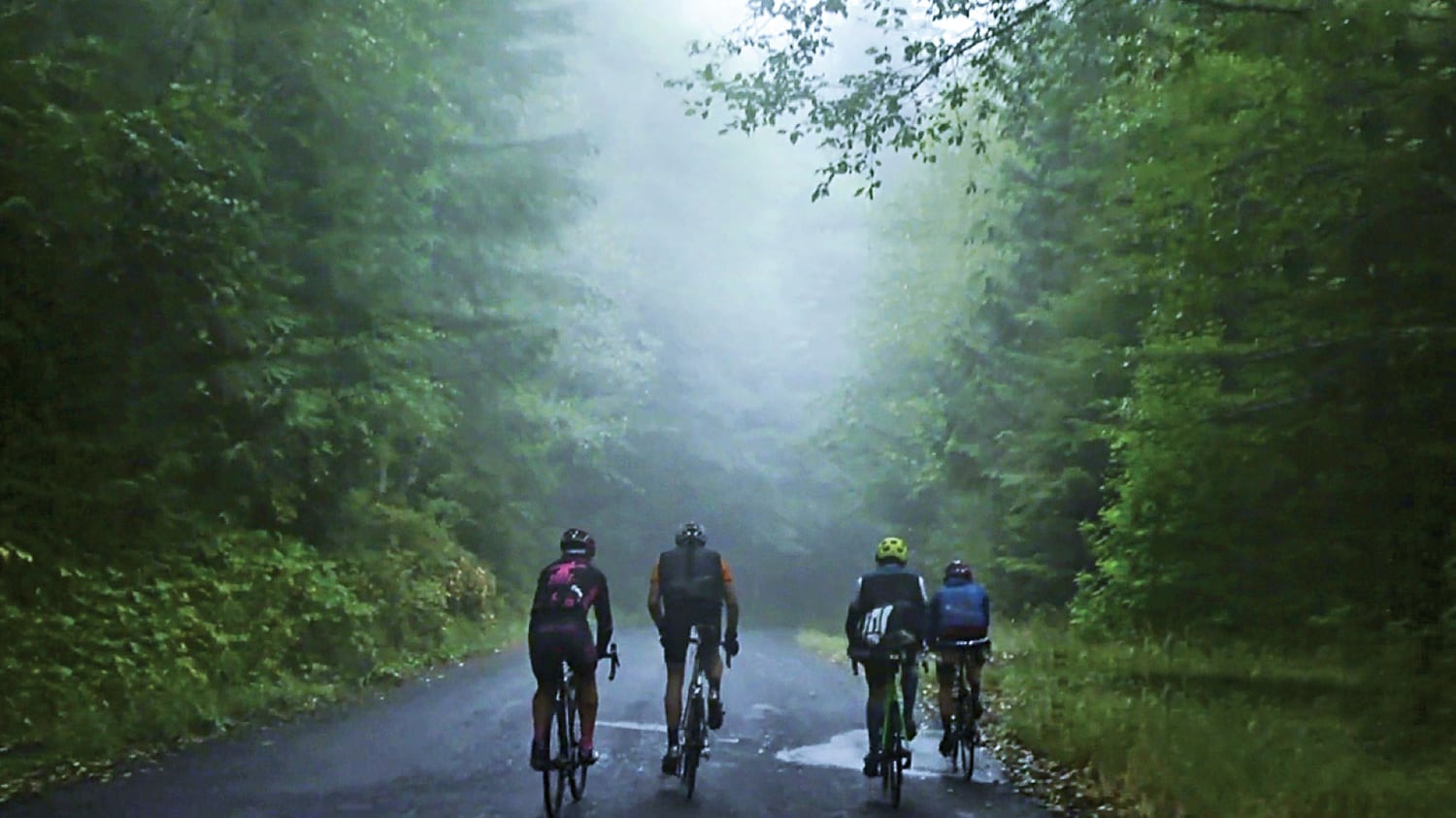In a city that holds cycling elemental to its identity, Portland's Filmed By Bike Festival has never struggled to find an audience. The event's director and founder, Ayleen Crotty, told WW two years ago that the turnout during its inaugural year exceeded expectations—people bought tickets knowing they wouldn't be able to see the screen.
Now 17 years in, the existential issue for Filmed By Bike has been what, or more importantly whom, to put on that screen. Crotty, a cycling activist with an experiential arts background, can remember one particular moment of dissatisfaction on the programming side.
"There was a year," she says, "in the early days where I stood in the back of the theater and thought, 'For all this work, is this really the best we can do?'
This year's festival seems deliberately curated to raise the bar. With 74 films from 15 countries that portray cycling as a combative force against sexism, violence, xenophobia and climate change, it's the most diverse lineup to date.
Filmed By Bike's programming has become more insightful and urgent, partially due to the way submissions are chosen. Crotty credits film manager Guthrie Straw and the festival jury, which handles the tireless, eight-month task of selecting bike films with cultural importance as opposed to those hinging solely on tricks or adventure riding.
Just as importantly, the world has changed. A festival with a premise this specific is dependent on handlebar storytellers coming out of the woodwork, filming at breathless altitudes or on embattled streets to examine how cycling impacts their lives.
Sometimes that involves subjects pushing themselves to new heights and lengths. I'm Not Stopping, for instance, captures the competitive pathologies of ultra-endurance rider Lael Wilcox, who self-chronicles 30,000 meters of vertical climbing through the Swiss Alps during a self-supported race. In the nearly 15-minute documentary, we witness Wilcox make fascinating decisions so spur of the moment, she narrates through hyperventilation, like someone forgoing sleep to gain a psychological edge.
The festival also screens shorts depicting what Crotty calls "the most important bike movement happening today," like Bikes Up Knives Down, which is part of a grassroots anti-violence campaign that's gone global. In it, young men and boys skirt gang life for bike clubs, lobbying for public space to ride, and fight the perception that they're causing trouble.
"People can go around the world and say, 'Don't do drugs,'" Crotty says, "but if it's not relevant to the culture, it doesn't resonate with the kids. This is so exciting and timely and individual."
Finally, Anthony Haughey's Sanctuary uses two wheels to trace the outlines of nations. Pedaling on a dewy morning, five refugees from the Middle East and Africa contemplate a historically tortured border between the Republic of Ireland and the U.K. they now live along. Haughey, who will attend this weekend for filmmaker Q&As and rides, examines the real and imagined divisions between nations, aiming to use bikes "as a practical resource and a symbolic gesture of freedom."
That's an apt characterization of cycling found in many of these films. Subjects cultivate a personal, sometimes all-too-fleeting sense of freedom with the only tools available—chains, tires and pedals. But at some point they will almost invariably, like some kind of subconscious rule, hold out their arms as if flying. That could be why Filmed By Bike's pool of worthy programs seems only to grow deeper in times of international conflict and digital alienation. The mechanical eventually becomes transcendent.
SEE IT: The Filmed By Bike Festival screens at Hollywood Theatre, 4122 NE Sandy Blvd., filmedbybike.org. Various times Friday-Sunday, May 17-19. $15 for individual showings, $70 for a festival pass.

